How To Get A Long Exposure Shot On Iphone
Long exposure photography is one of the most interesting iPhone photography techniques that allows you to create unique photos where moving subjects are blurred out to create a beautiful dreamy look. While long exposure photography was traditionally limited to SLR cameras, in this article you're going to find out how to take great long exposure photos with your iPhone.
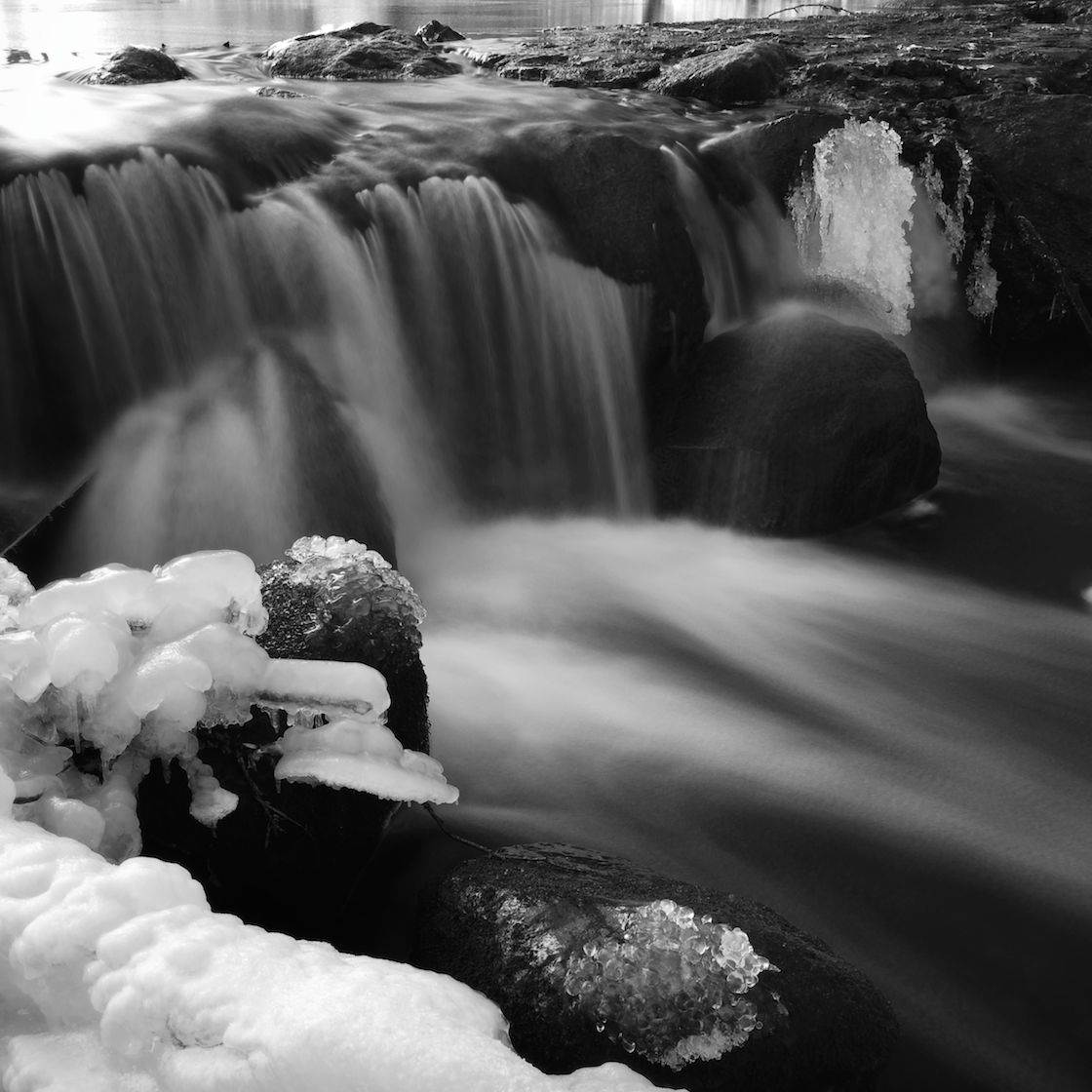
Get A Tripod
You really need an iPhone tripod to do long exposure photography. Since long exposure photography captures movement in the scene over time, you have to make sure your iPhone remains steady during the capture to make sure you don't take blurry photos. It's one of the reasons a tripod features in our top 6 Essential iPhone Camera Accessories.
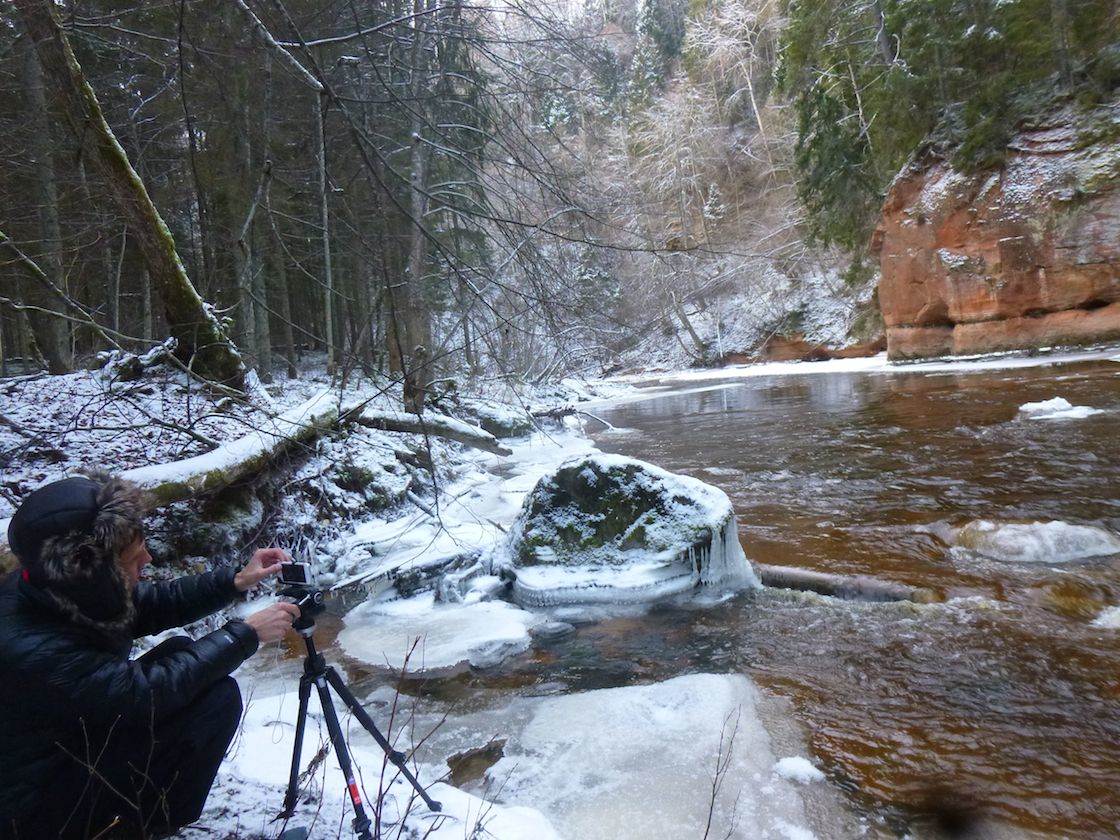
That's me using the gear listed in this post
While any tripod can be used for long exposure photography, I prefer to use a relatively serious tripod that remains stable on slippery surfaces such as ice and wet rocks.
I use Manfrotto 190XPROB tripod with Manfrotto 804RC2 tripod head, which provide great stability and a lot of control for getting the composition and framing exactly right.
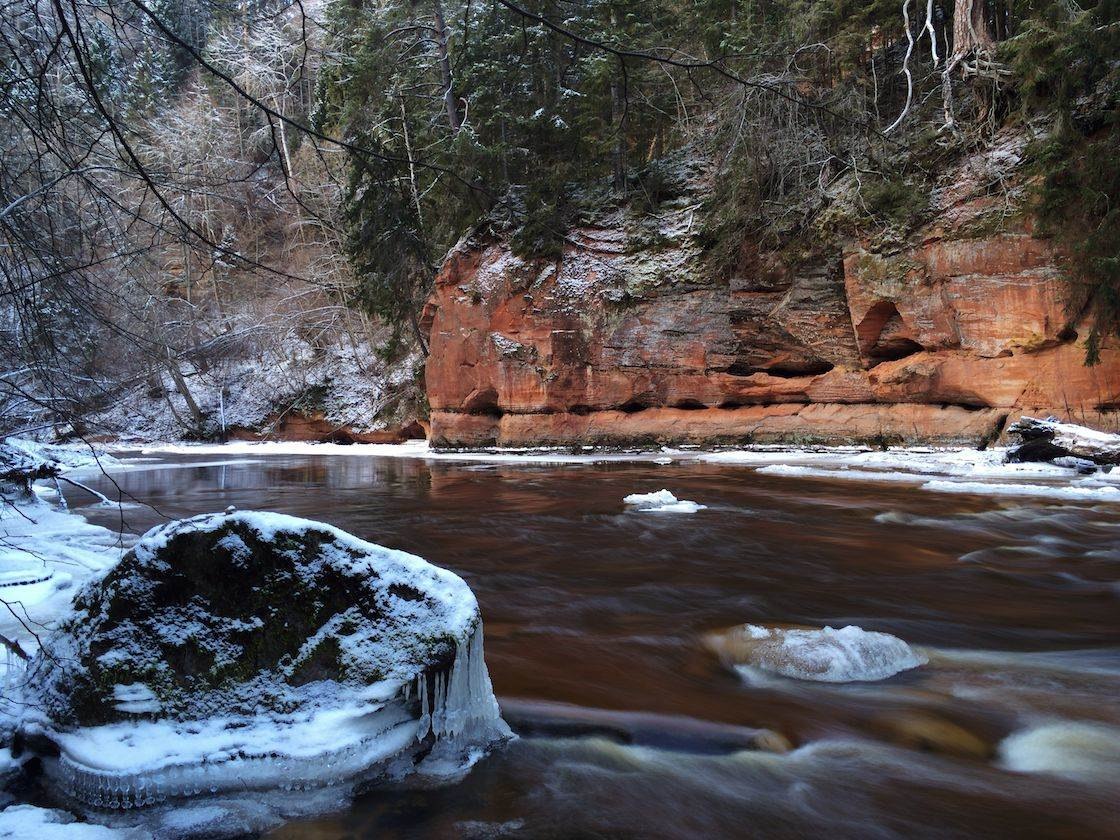
And this is the photo I was taking
You also need to attach your iPhone to the tripod. While there are many different tripod mounts for iPhone, nothing beats Glif in terms of how well the phone is attached. With Glif+ I can carry the tripod around with the iPhone attached and facing down – I don't think that's possible with any other tripod mount.
Finally, I recommend using your white Apple earbuds for shutter release. If you plug in the white earbuds that were included with your iPhone, open the Camera app and press the volume up button, you'll be able to take photos without physically touching your iPhone. This trick is great for further reducing camera shake while using a tripod.
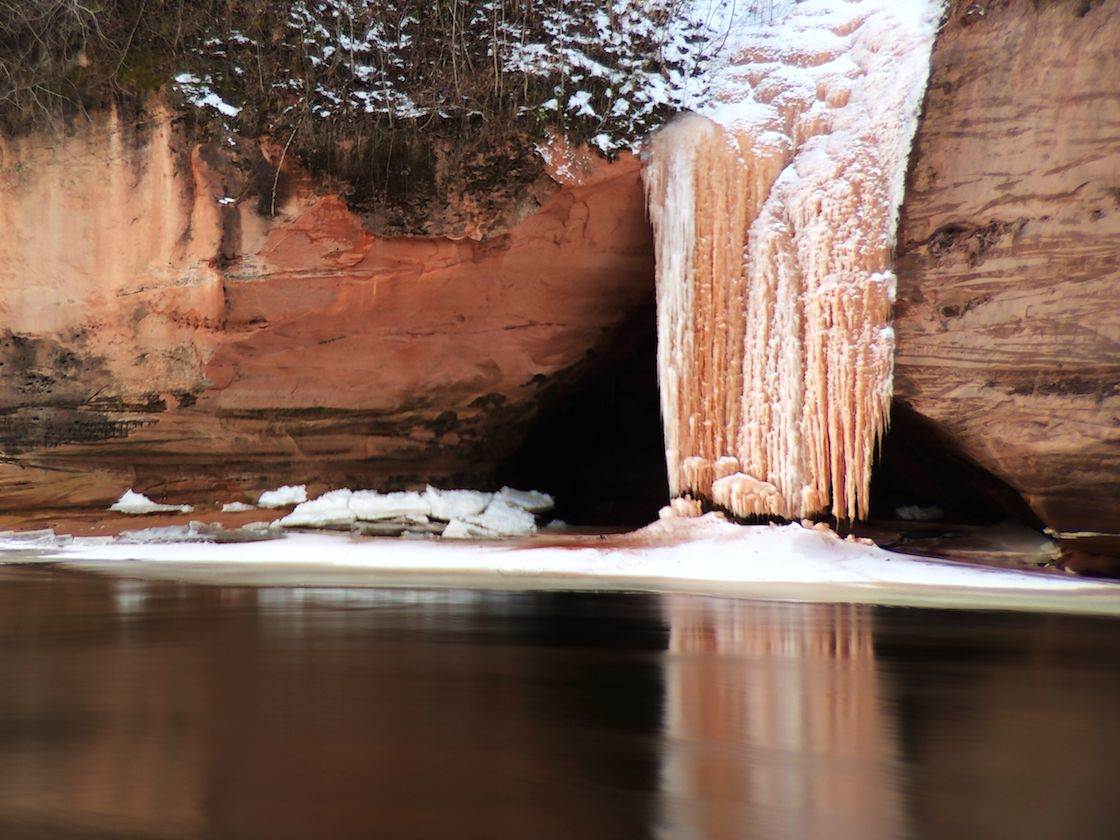
Download The Right App
The iPhone doesn't support true long exposure photography (the shutter can't stay open for a long period of time). However, clever app developers have found a way around this problem by digitally combining multiple exposures of the same scene to simulate long exposure photography.
While there are multiple apps that can achieve this effect, the one I use and recommend is called Slow Shutter Cam. When you first open Slow Shutter Cam, make sure you visit app settings to select the highest Picture Quality and turn on the Volume Shutter (or else the earphone trick won't work).
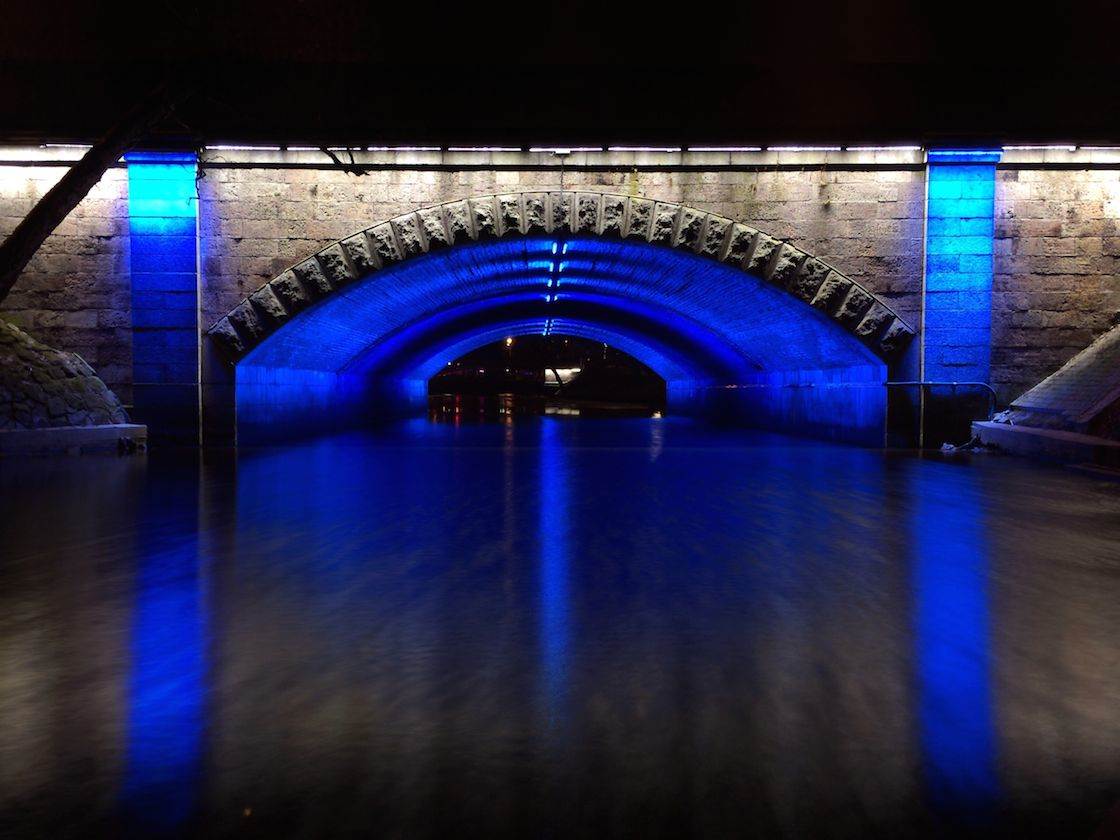
Select The Best Exposure Settings
Once you've framed the shot, you have to select the right exposure settings which can be found under the exposure icon next to the shutter button. Once you tap there, the following dialog will appear.
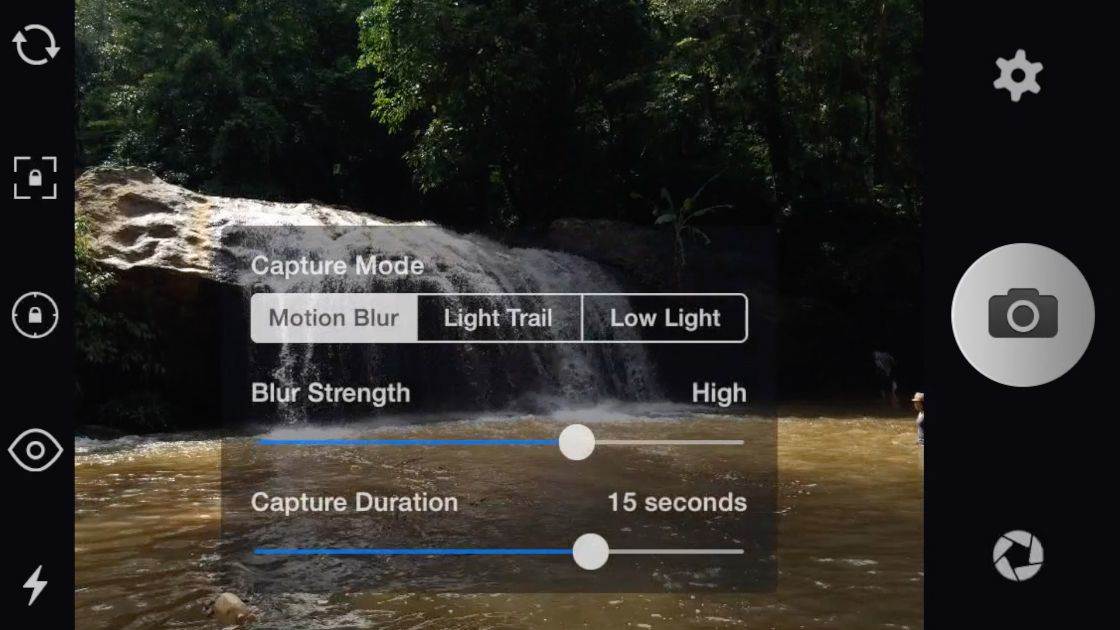
Here you can select Capture Mode, Blur Strength and Capture Duration. For most day-to-day shooting in good light conditions you should select Motion Blur capture mode.
I can't give you the exact settings to use for the other two parameters since every photo is different. I generally use medium or high blur strength and a capture duration between 4 and 30 seconds. Experiment with different combinations of these settings until you find the ones that work best for each particular photo.
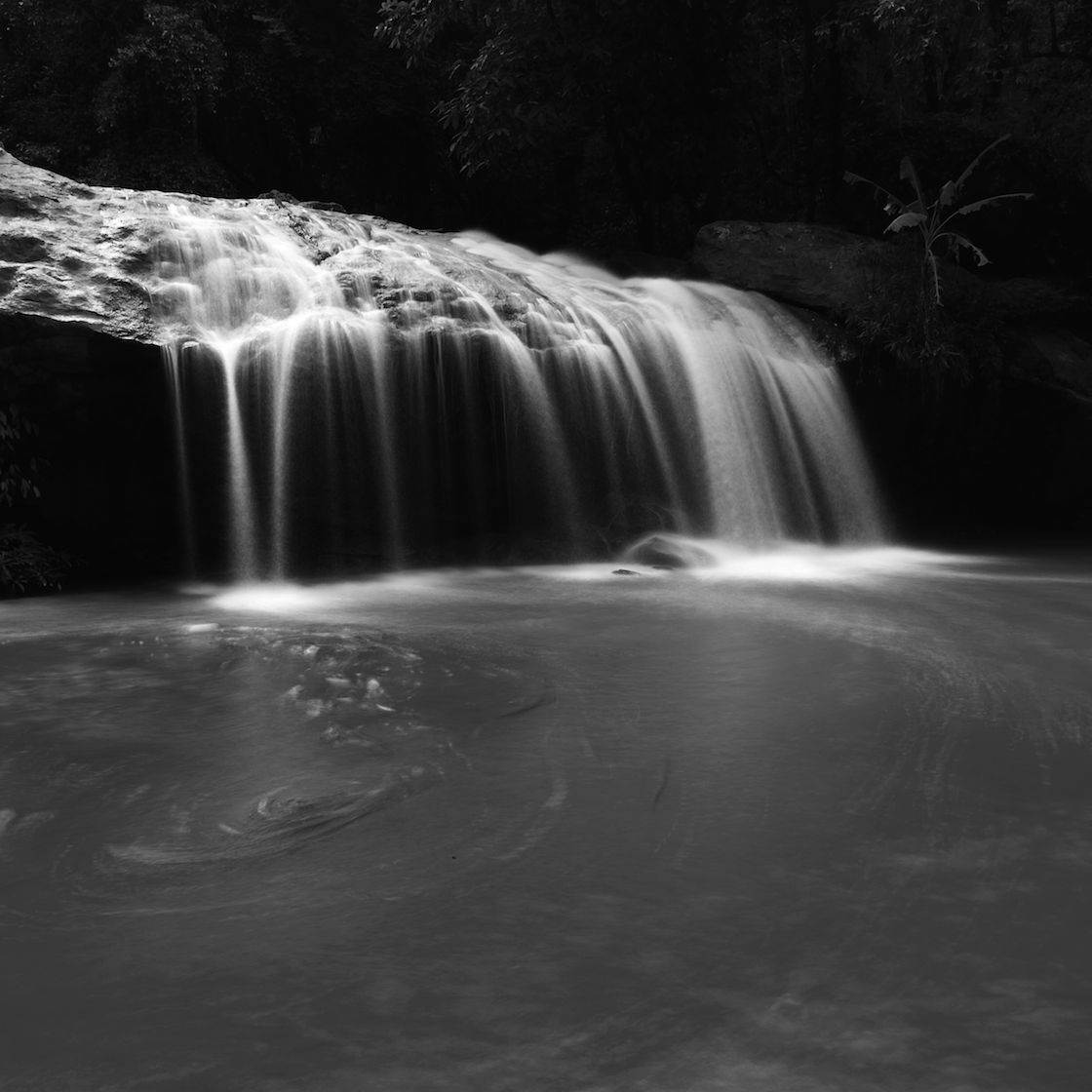
Slow Shutter Cam digitally combines multiple photos to create one long exposure, so you'll get more natural results with longer shutter speeds since the app has more images to work with. However, if the shutter speed is too long, you risk blurring out your subjects altogether, which is why you should experiment with these settings for each photo.
Photograph Moving Water
Now that you have everything you need, it's time to find the right conditions for long exposure photography. With varying success you can take long exposure photos of pretty much any moving subjects, but the one situation where it really makes sense to use long exposure is when capturing moving water.
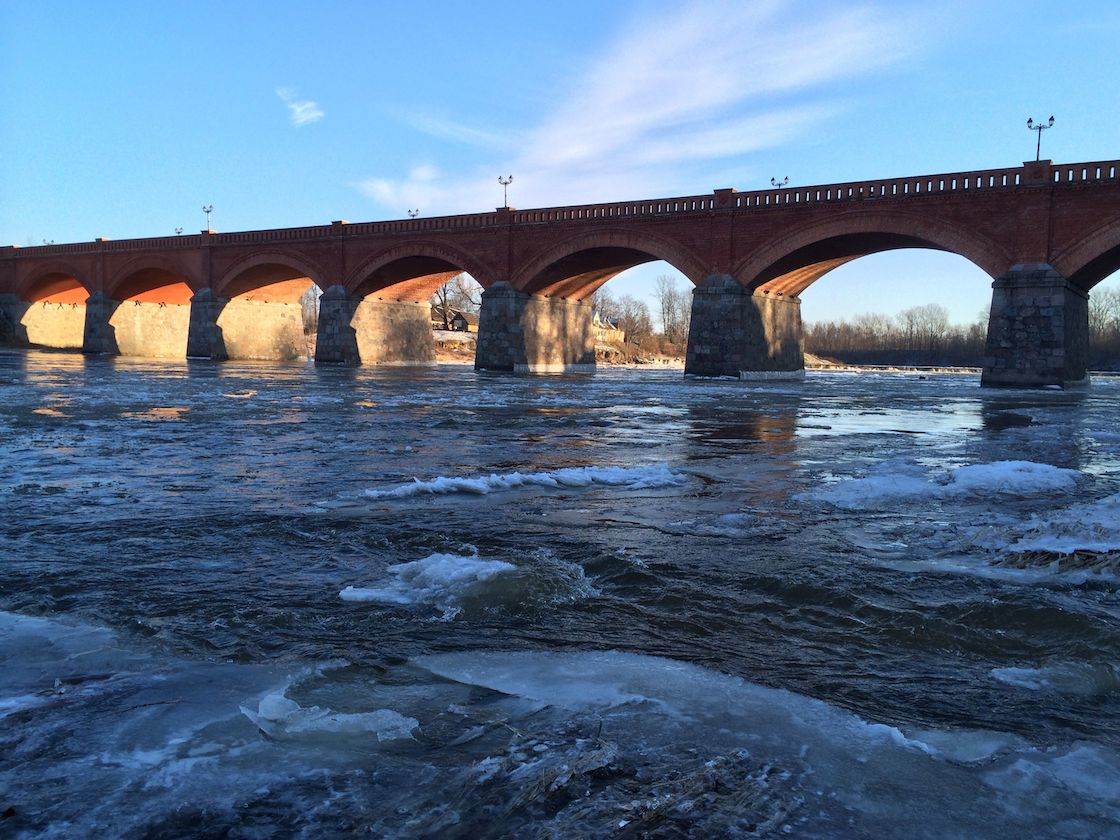
In this example you can see a river scene where the flowing water and ice are frozen in time using the iPhone's native Camera app.
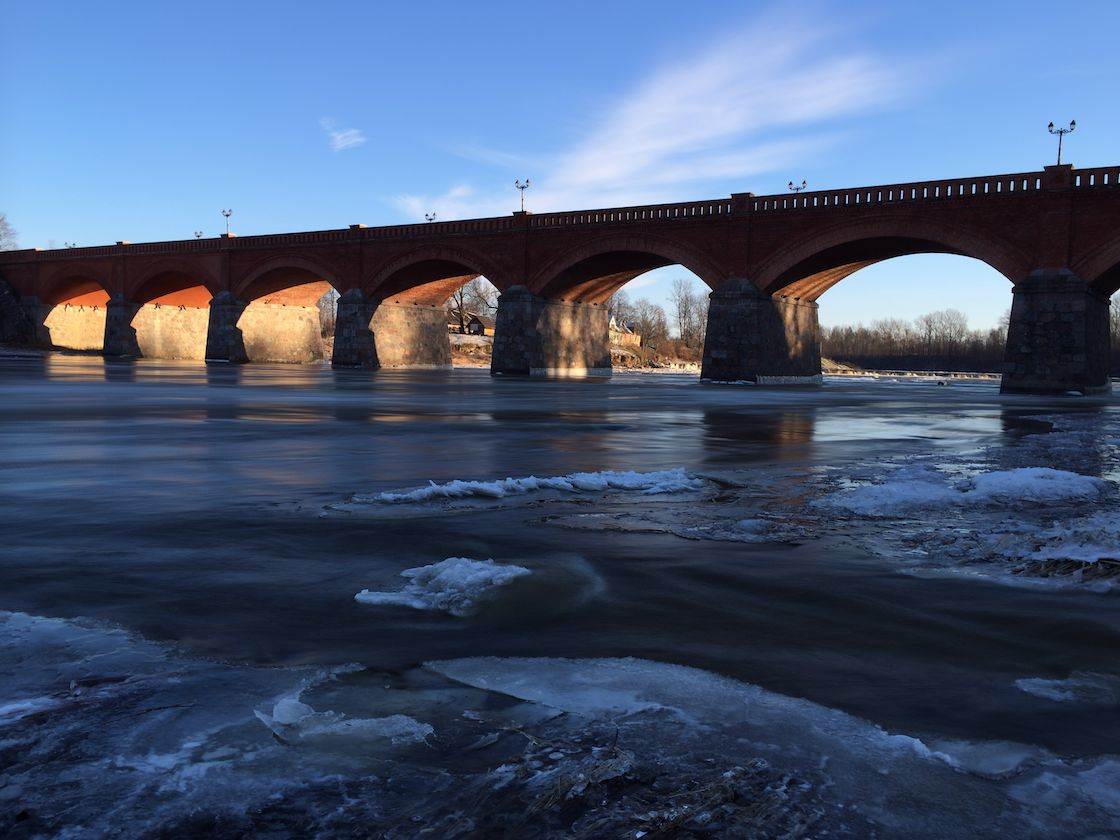
And here is the same scene captured using long exposure. As you can see, using long exposure allowed me to blur out all the moving water and ice to create a beautiful dreamy look in the river, while also emphasizing the speed at which the river is flowing.
In a similar manner long exposure photography can be used to enhance any landscape photos that contain moving water, including rivers, lakes with waves on the surface, and even the shore of the ocean.
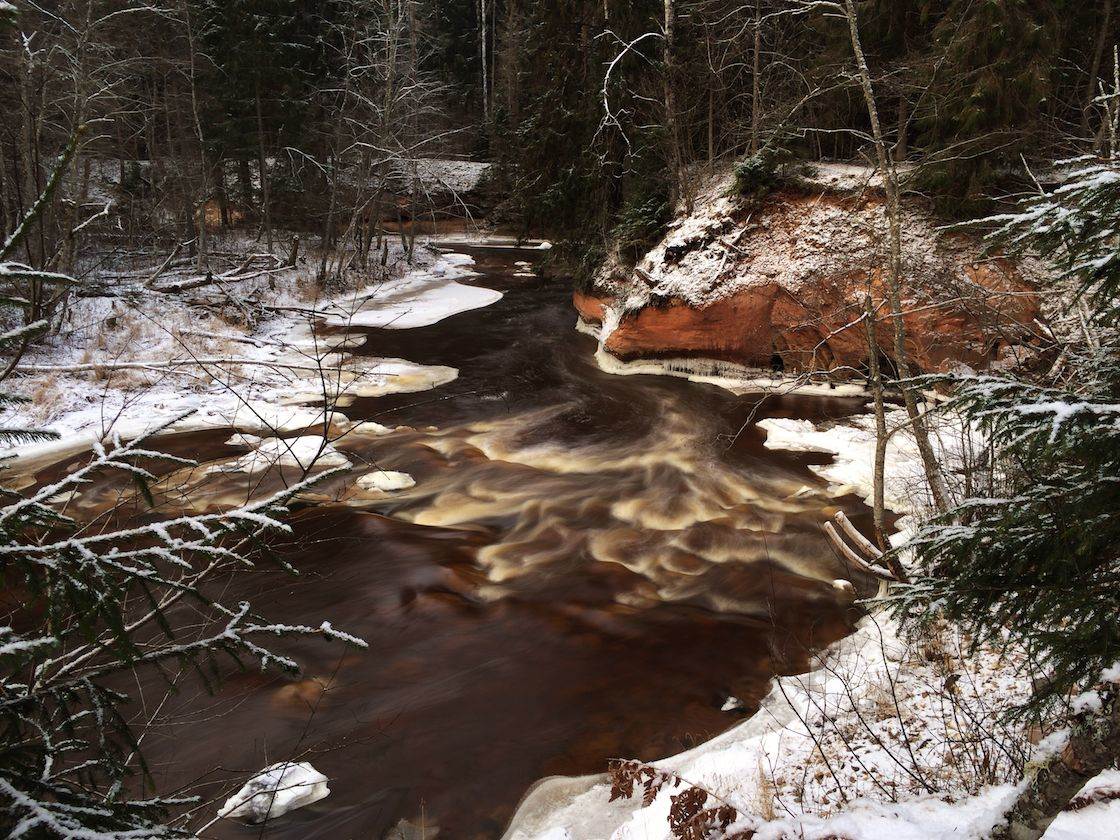
While long exposure photography is great for blurring out any moving water, it really works great when taking photos of waterfalls.
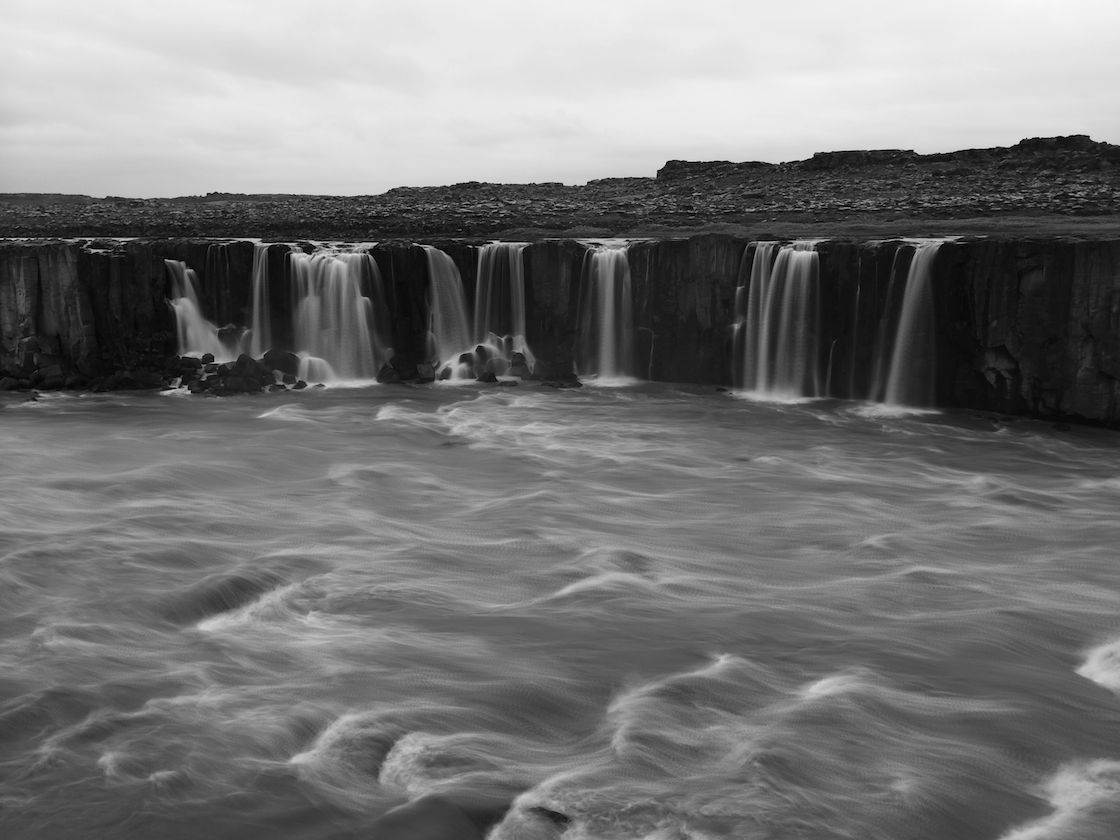
While blurred-out waterfalls can create wonderful photos, you have to be a little careful with exposure, particularly on sunny days when you should always set exposure on the brightest parts of the waterfall to avoid overexposing the white water.
Even if you don't have any great waterfalls in your area, you can still get interesting results if you're creative with the angle you take photos from. To give you an example, the following (artificial) waterfall is only about a foot (30cm) high, but thanks to the close-up angle it still results in an interesting and unique photo.
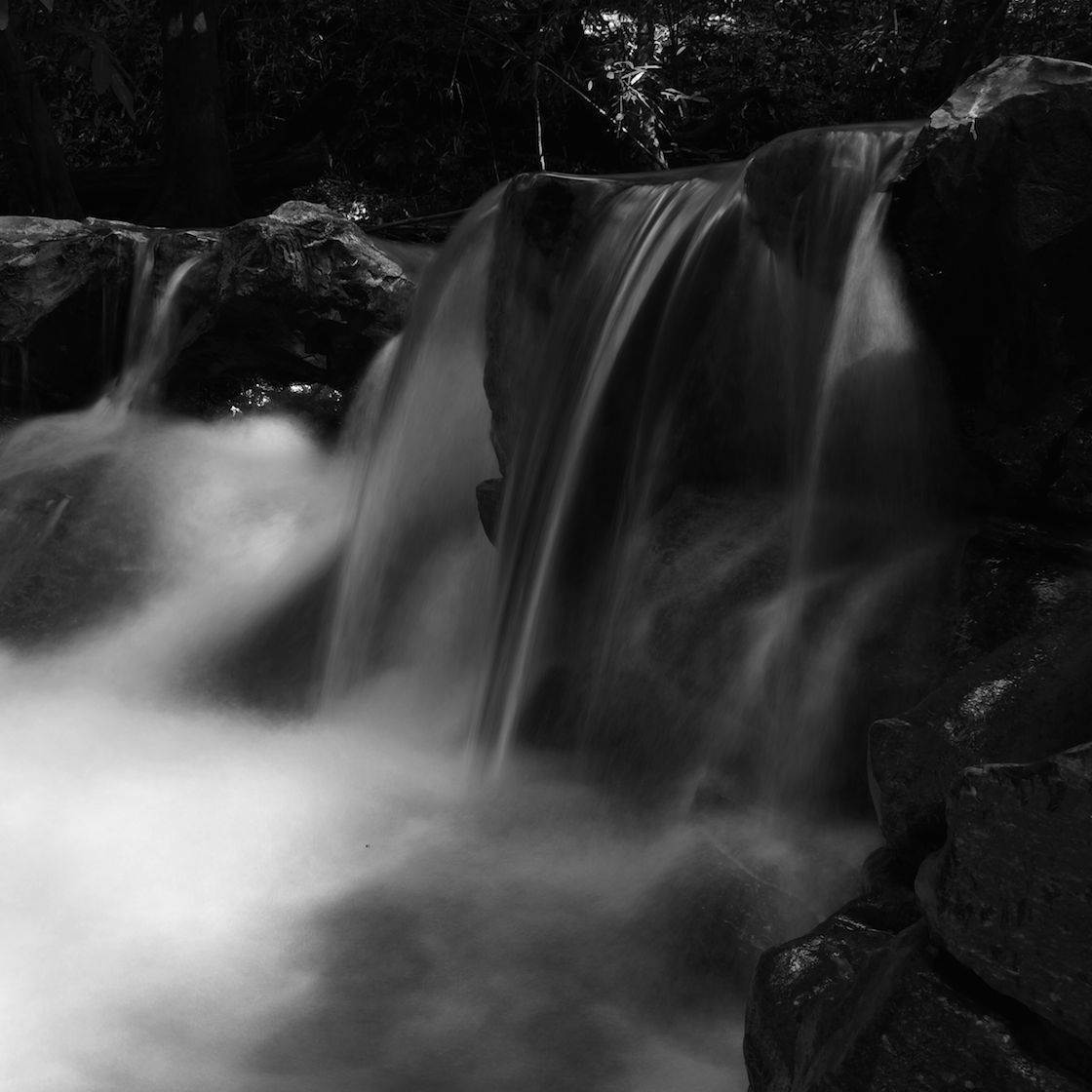
Finally, I don't recommend using long exposure for huge waterfalls because the large volume of water will be blurred out excessively as seen on the left side of the following image.
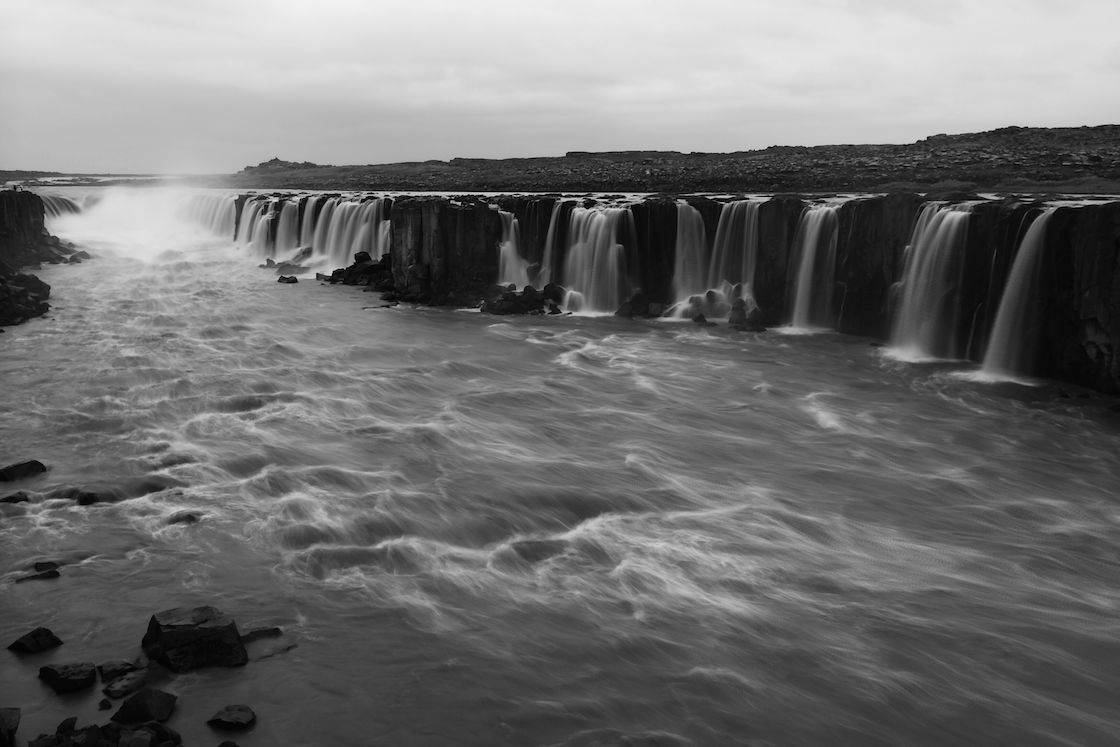
So if your goal is to capture the power of a massive waterfall, you'll get better results without using long exposure as that allows you to freeze the falling water in time.
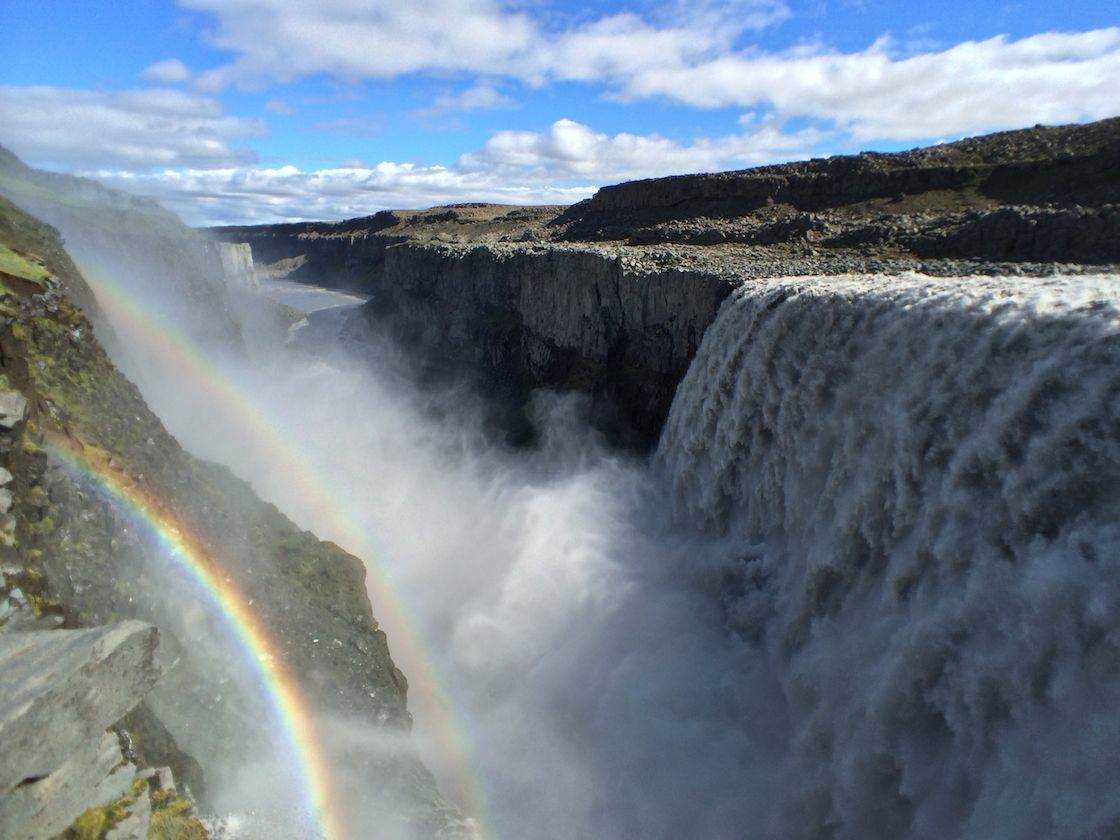
Photograph Light Trails
Besides moving water, light trails are also great for long exposure photography.
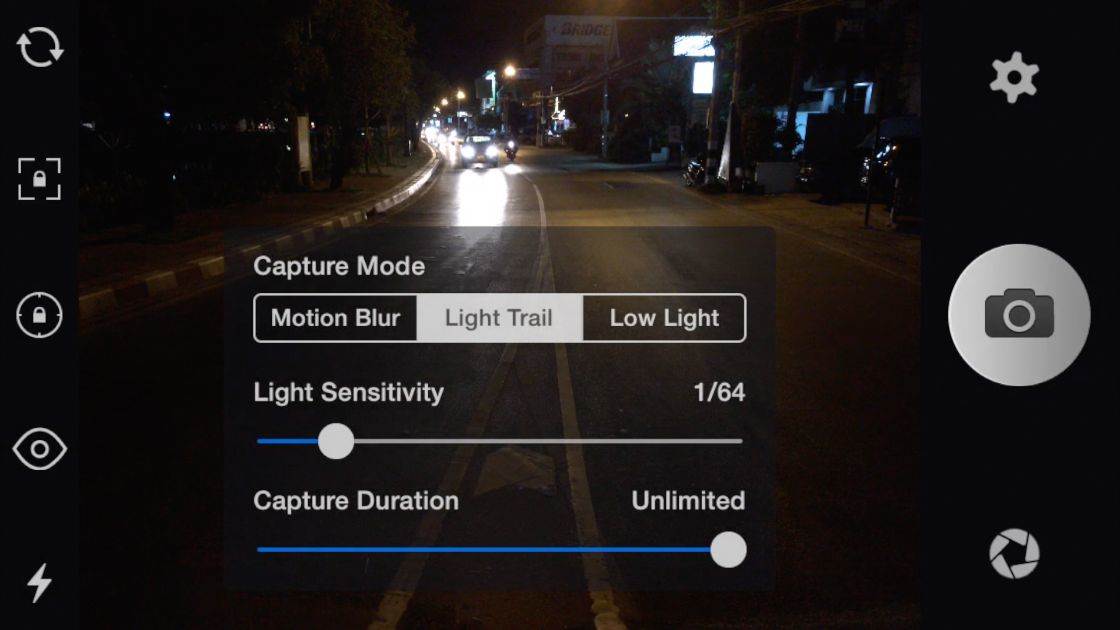
For light trails you need to select Light Trail mode in the exposure settings of Slow Shutter Cam as shown above. You then need to find the correct light sensitivity value based on how bright the lights are relative to the rest of the scene.
Finally, you have to select the right capture duration, or you can select Unlimited capture time as shown above. In that case you need to press the shutter again when you're happy with the photo that's developing in front of your eyes.
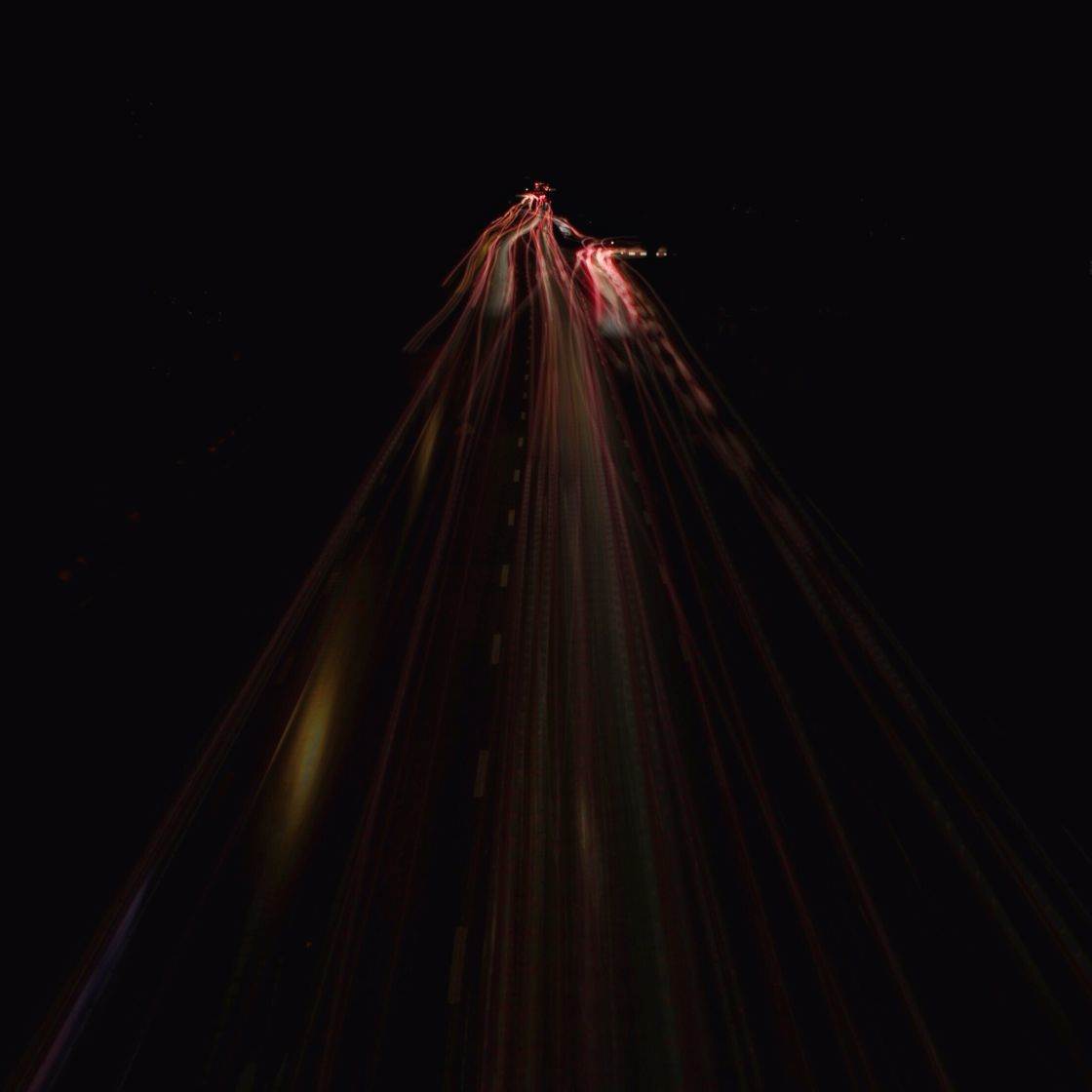
You'll generally get more interesting light trail photos if you focus on red taillights as opposed to white headlights. If you're going to use both in the same photo, keep in mind that headlights are significantly brighter than taillights.
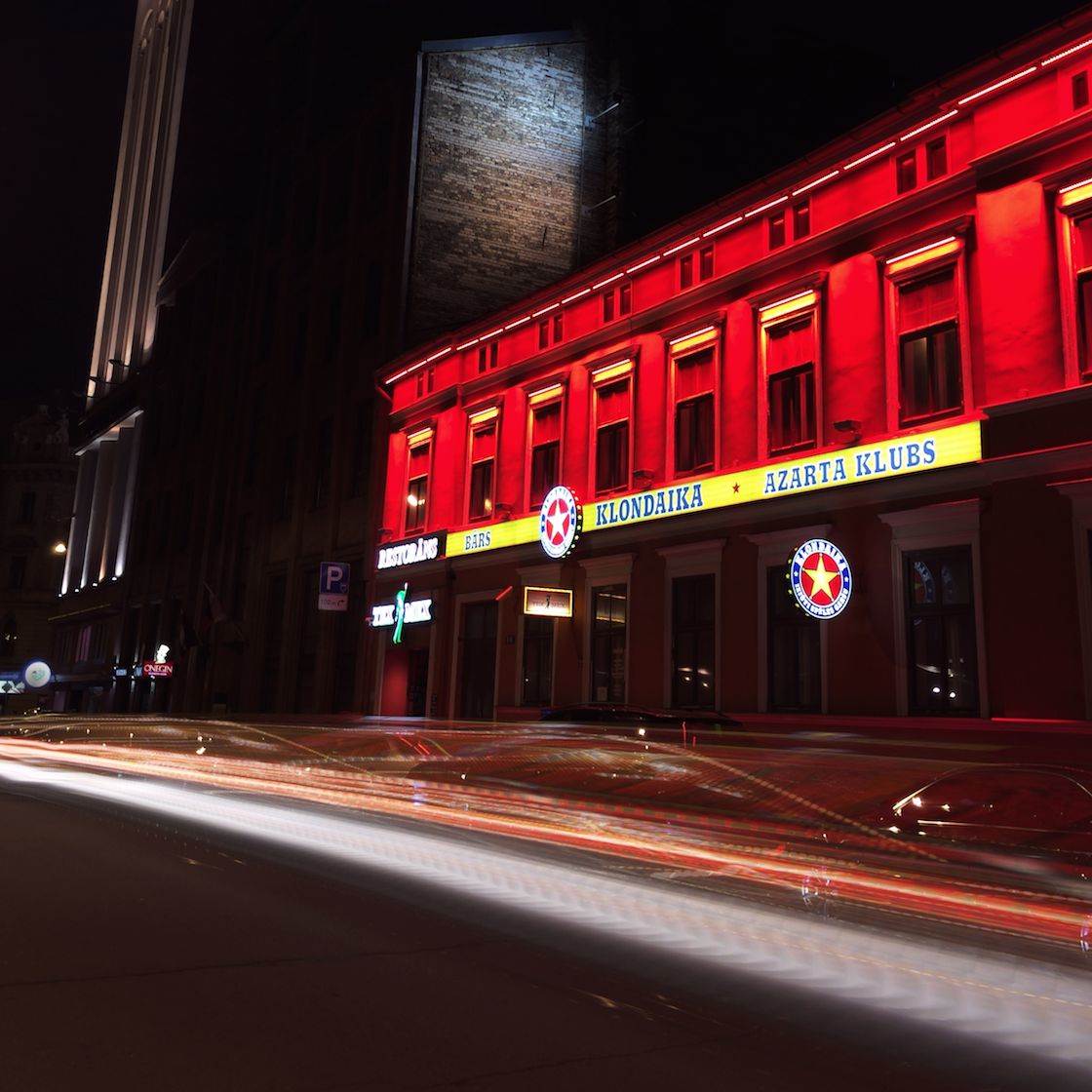
How To Get A Long Exposure Shot On Iphone
Source: https://iphonephotographyschool.com/long-exposure/
Posted by: pelletiermoseeld.blogspot.com

0 Response to "How To Get A Long Exposure Shot On Iphone"
Post a Comment